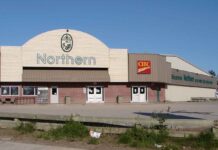Unless you’re a careful operator, you may find yourself among the 60 per cent of businesses where the owners receive very little money at the end of the day
By David Fuller
Columnist
PRINCE GEORGE, B.C. – BUSINESS – It was serious business! My brothers and I were neck deep in it. We were digging to China when we were interrupted by the call by our mother for dinner.
Digging holes is something boys do. We dug holes for forts, holes for adventures and holes in search of gold. My son at the age of three dug a hole to trap bears.
In business, however, when we dig holes – unless we’re in the construction business – they’re usually not good.
I’ve dug myself some holes as a businessman over the years. The biggest was several hundred thousand dollars deep. These types of holes don’t happen overnight. They take lots of planning and many hours of making mistakes. And sometimes they take years to get out of.
The most common holes in business are profit holes: costs that build up over time and eat away at the owner’s profits.
According to the National Federation of Independent Business in the U.S., 60 per cent of small businesses are either not profitable or are only marginally profitable. The profit in a business is what’s left over after paying all of your expenses. In a small business, there are many expenses: goods, labour, insurance, supplies, utilities, computer equipment … the list seems almost endless.
Unless we’re careful operators, we may find ourselves among the 60 per cent of businesses where the owners receive very little money at the end of the day.
One of my clients (we’ll call him Paul) owned a business he ran for several decades. As he was thinking of selling it, he realized that new owners would probably like a business that was a little more profitable. Paul started examining his income and expense statement with a fine-tooth comb.
He discovered several areas in which some of his costs had crept up over the years. He found he had originally employed a cleaning company on a contract for a small job, for $50 per week. Over time, they gradually raised their prices to $100 a week. He consulted his employees and was told they thought they had time to do the contractor’s work, since he only spent 15 minutes a week in the building. That filled a $5,200 profit hole.
Paul kept digging. One day he got a call from a service provider for debit machines. They told him he could save $400 a month if he switched. Paul used that call to ask his current provider to match their rates. When they agreed, Paul saved another $4,800.
Plugging these two profit holes saved Paul $10,000 a year. That’s a significant amount for a small business owner.
Not only did Paul enjoy that money immediately, he increased the value of his business.
When we’re looking for ways to reduce our expenses and plug profit holes, we need to look through every business expense. We must ask ourselves how we can reduce our costs.
In my book Profit Yourself Healthy, I identify 107 ways small business owners can reduce their expenses. These include reducing costs in labour, energy, consulting fees, insurance, travel, maintenance and more.
Sometimes we can eliminate an expense. Often we can lower costs by putting the product or service out for tender again.
The trick is to look at the largest expense areas first and figure out how to create efficiencies.
The longer we’ve been in business, the more profit holes we can find. Like Paul, we let little expenses build up and our profit is eroded.
It’s easy to dig holes but sometimes it’s much more profitable to fill them.
David Fuller, MBA, is a certified professional business coach and author who helps business leaders ensure that their companies are successful. David is author of the book Profit Yourself Healthy.
© 2017 Distributed by Troy Media
The views, opinions and positions expressed by all columnists and contributors are the author’s alone. They do not inherently or expressly reflect the views, opinions and/or positions of NetNewsLedger.com.









